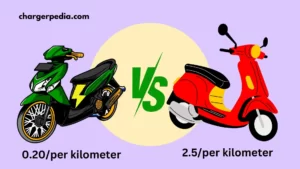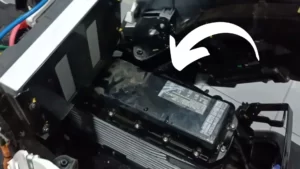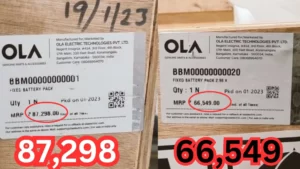
Have you recently bought an ev car or a bike?
Then you must be searching for some charging advice for your vehicle. EVs are among the trending topics; most people are switching from fuel-operated vehicles to EVs. The best part of buying an EV car or bike is that its running cost is low, and the worst part is that these vehicles take a lot of time to charge.
Due to this, most people opt for the fast charging option, but do you know that you should avoid this? Here I have listed reasons to avoid fast charging your EV. These reasons I have come thru after analysis and a lot of research.
Let’s see some main reasons you should avoid fast charging your EV.
Table of Contents
1. Higher charge cost.
In most fast chargers, direct current charges the vehicle’s batteries. The voltage of this current is about 1000 volts and 500 amps as it charges the vehicle in 20-30 minutes. The money required to charge your vehicle is undoubtedly higher than the home charger.
Here is the comparison of charging at home vs. the station to show higher costs.
- At home (120 V) – $9-$11.
- DC fast chargers – $24-$32.
However, it’s less expensive than a gas filling, but it also degrades your battery life.
Read – How Much Does A Car EV Charger Cost?
2. Reduce lifespan and charge cycle.
The more you charge your batteries, the quicker their charge cycle and lifespan will be reduced. As per Tesla CEO Elon Musk, tesla batteries can be charged up to 1500 cycles. This means these batteries can work fine for up to 5-6 years, and the range may decrease.
You may charge your batteries using a fast charger daily, but doing so will reduce the charge cycle. Doing this task also puts a lot of stress on the batteries, leading to heat generation.
3. Generates a lot of heat.
When you charge your Ev at a fast charging station, compared to home charging, it slightly generates more heat, and you may find that your batteries will heat more. The reason is due to more current flows to the battery. Due to this, especially in summer, you should avoid charging your car at fast charging stations frequently.
4. Effects environment.

You may think people using electric vehicles save fuel, but do you know that is partially true?
I researched various countries and how they produce electricity; the data I got was shocking.
USA, China, and India These three vastly populated countries produce electricity thru natural resources such as (coal, petroleum, and fossil gas), which is about 70%-80% of the total energy production. The electricity produced from renewable sources(Wind, hydro, and solar) is 10%-20%.
5. Noise Pollution.
Many fast charging stations generate noise because of the presence of transformers. When too many vehicles are charged at once, the electricity requirements increase, which puts a load on the stations, generating a lot of noise.
6. Impact on battery warranty.
Charging the batteries regularly on a fast charging station increases the chance of their degradation and reduces battery life. This can impact the warranty of the battery. However, the last year of the warranty is 5 years, and most years of warranty 10 years is what you get in EV batteries. The warranty only covers the internal damage to the battery, not the physical one.
Read – TATA Nexon Ev Battery Price -Details You Need To Know!
7. You may not save time.
If your fast charging station is far from your home and it takes more than 3-5 miles to go to it, then you are making a huge mistake. Other than that, using a fast charger doesn’t make sense for those people who drive or ride their EV 10-15 miles daily. Instead, you can use a level 2 charger to charge your device for 45 minutes to 1 hour.
Note: Tesla cars can run up to 44 miles in one hour of charging.
Why is slow charging a better option than fast charging?
Slow charging is always a great option for your EV. Try installing a Level 2 charger at your home for a better experience with your EV. The Level 2 chargers are famous for charging the battery efficiently, and it is better than DC fast chargers.
Here are a few reasons to use a level two or slow charger to charge your EVs.
- Increases battery life: Using a home charger can increase battery life, but only if you after prolonged use. Using Level 2 chargers can immensely save the charge cycle of your ev batteries.
- Saves money: Charging at home is more affordable than using a DC fast charger. The residential electricity tariff is cheaper than the commercial tariff rate.
- Generates less heat: When a slow charger is used, less electricity is used, so the heat produced is also less.
Should you install a fast charger in your home?
If you are thinking about installing a DC fast charger at your house, that would be the dumbest thing to think of because these fast chargers will cost you more than buying an EV itself.
Say NO to regular usage of fast chargers if you want to increase the life of your EV, and opt for a level 2 charger that comes with your car. If you have a level 1 charger, then you can easily upgrade it.

This video will guide you on installing an EV charger at your home at a very low cost.



